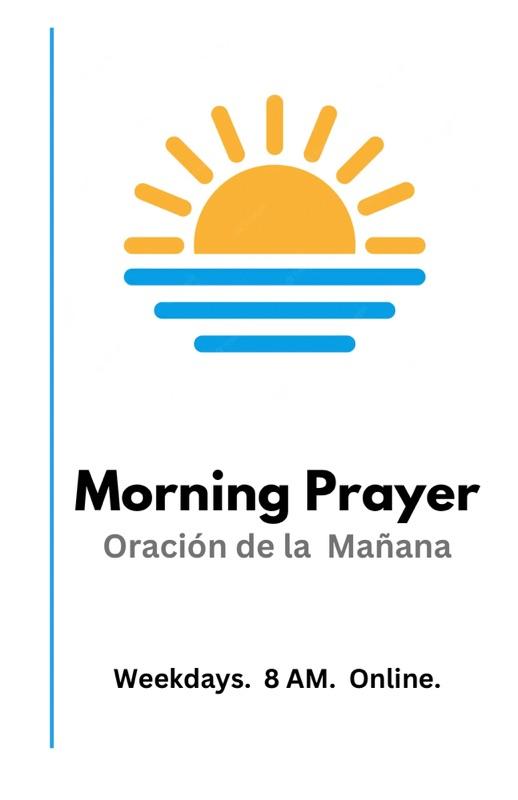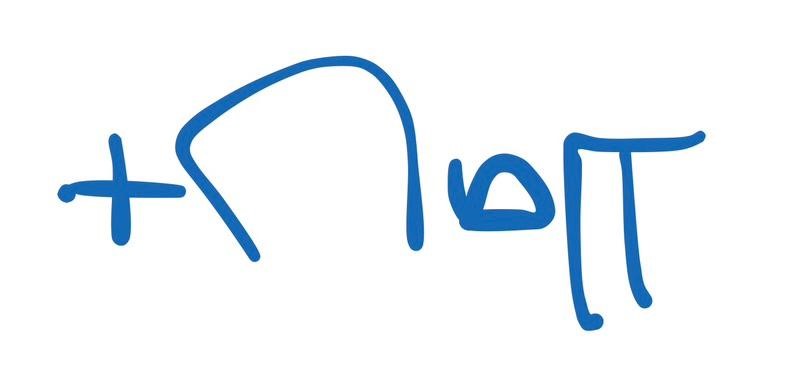Coming up at St. John’s
This Sunday, Nov 5: All the things are happening!

Stewardship Sunday with a Special Coffee Hour – During worship, we’ll hear from our Stewardship Chair this year, Kathy Burdick who is also pulling together a special extended coffee hour.
Being Baptized Into the Body of Christ and
Being Received Into the Episcopal Church
December 10 (Bishop Mary Glasspool visits)
Interfaith Gathering of Gratitude
Every year, Congregation Emanuel of the Hudson Valley is our gracious host for Kingston’s interfaith gathering and the tradition continues this year, of course. But this year Rev. Michelle hopes that we can all make an effort to join the gathering: Tuesday, November 14 at 7:00 pm.
The war between the governments of the Israelis and the Palestinians in the Middle East may seem as though it’s far away but it has a direct impact on our lives here in Kingston because, as you may have already seen, there are people who take these opportunities to spew anti-semitic rhetoric. This means, regardless of our opinions about what should or should not be happening between Israel and Palestine, we need to be concerned for our Jewish neighbors and their physical safety as well as their sense of security.
Showing up to this event is an important message of love and support for our neighbors at Congregation Emanuel of the Hudson Valley.

Vestry Notes for October
- In her Rector’s Report, Rev Michelle noted that she and Rev Eliacin of Holy Cross Santa Cruz are developing an evening Advent Series that will begin on Thursday, November 30. The theme will be Becoming Beloved Community and we will have an online component for those who cannot drive at night. Stay tuned for more information.
- The 247th Convention of the Diocese of New York is on 11/11/23. Rev Michelle and Paula Wisneski will travel to the Cathedral of St. John the Divine in NYC. The day is spent voting on candidates for Diocesan Offices and resolutions for our common life, listening to reports from various committees, and drawing on the power of a people gathered in prayer and praise. Our proclamation: For all that has been done, Thanks! For all that will be, Yes! -Dag Hammarskjöld.
- Please join all people of faith in Kingston in attending the Interfaith Gathering on 11/14/23. We gather in particular to support the well-being of Congregation Emanuel during these heartbreaking days of conflict and peril.
- We are excited that Brian Silver has officially joined the St. John’s family, as he begins his permanent employment with us. Although we are still fine tuning his official job title and responsibilities, Brian has already contributed so much to our parish life: he has enlivened St. John’s Kitchen rentals and we cannot thank him enough for his contributions to the wildly successful Neighborhood Block Party. He will be taking on some vital tasks like overseeing maintenance for the buildings and grounds and assisting with the St. John’s Newsletter.
- The Vestry is starting to put into place plans for Rev Michelle’s 2024 sabbatical that will begin in April, after Easter, and continue through May and June. We are considering the coverage that will be needed and welcome any ideas or concerns you might have.
- The Vestry will be spending Saturday, 11/4/23 conducting a Mutual Ministry Review along with Rev. Michelle. We will be led by the Rev. Allison Moore of St. Andrew’s in New Paltz as we take time to assess St. John’s ministerial goals and what role each of us plays in our common life. We will be sharing the results of this day and asking you to give us your thoughts on where St. John’s is going and how we can nurture the growth of the parish. Our theme: Looking forward not backward.
Submitted by Kathy Burdick
Clerk of the Vestry
Turning Toward Hope

Today, the clergy of Ulster County met with our Bishop Co-adjutor, Bp. Matt Heyd. He’s always an inspirational person to be with because he listens with deep concern and compassion to the struggles we go through in our congregations. And his response is always direct and earnest. And he remembers… everything.
(I, personally, am very jealous of this trait; immediate recall is not my strong suit. The things I need seem to pop in to my brain about 5 minutes after I actually need them. But, I digress…)
Today, as we spoke together about various struggles, Bp. Matt listened intently, took notes, acknowledged larger structural problems, and continued to connect the things we were saying to the larger conversation. In every moment, he was compassionate and caring, and noted that “shame” is such a big part of what people experience when there are times of struggle. We think that, because we are struggling, there must be something wrong with us. Shame is difficult to move through.
And then we were reminded that the season of Advent, which is coming up in just a few weeks, is a poignant time for us to reflect on the shame we experience. As we prepare for the arrival of hope in our lives at Christmas, we start to see through the false stories of worldly power and greatness that can create a sense of shame in us. But, as we come to learn through this season, we never find our hope in worldly power or in any of the ways we often try to find it.
God chose the most vulnerable one to carry the light and the hope of us all. So then, may we, without shame or fear, rejoice to behold his appearing.
In God’s love and mine,
Rev. Michelle
Announcements for November 5
All Saints’ Sunday
 St. John’s Office Hours
St. John’s Office Hours


 Heads of Churches in Jerusalem, as well as Pope Francis and Archbishop Justin Welby, to pray fervently for all those who have been hurt, harmed, or killed in this conflict. My heart aches when I remember
Heads of Churches in Jerusalem, as well as Pope Francis and Archbishop Justin Welby, to pray fervently for all those who have been hurt, harmed, or killed in this conflict. My heart aches when I remember 

 Next week! St. John’s Neighborhood Block Party
Next week! St. John’s Neighborhood Block Party St. John’s Bible Study Continues
St. John’s Bible Study Continues






 With a feast day this past week on August 24, Bartholomew is one of the 12 apostles appearing in the Gospel stories of Matthew, Mark, and Luke. He is also a part of the story in the Acts of the Apostles. We don’t often hear much about him though. Who was he? What did he do?
With a feast day this past week on August 24, Bartholomew is one of the 12 apostles appearing in the Gospel stories of Matthew, Mark, and Luke. He is also a part of the story in the Acts of the Apostles. We don’t often hear much about him though. Who was he? What did he do? upside down, or he was flayed and beheaded. Regardless of the story, Bartholomew remains an especially significant figure in Armenian Christianity and other Eastern Christian Churches because it was in the countries we now know as Turkey and Azerbaijan, that Bartholomew traveled to spread the news of Jesus the Christ.
upside down, or he was flayed and beheaded. Regardless of the story, Bartholomew remains an especially significant figure in Armenian Christianity and other Eastern Christian Churches because it was in the countries we now know as Turkey and Azerbaijan, that Bartholomew traveled to spread the news of Jesus the Christ.


 In icons of Mary Magdalene, we often see her depicted with a jar of perfume to recall her anointing of Jesus. Otherwise, we see her depicted with an egg and, contrary to what you might find when you search about this on the internet, this has nothing to do with Easter eggs. Very simply, the egg is a symbol of the Resurrection. All other stories about Mary and eggs are fables. A word of caution, thanks to the novels of Dan Brown (which are fantastic fictional reads!), there is a significant amount of conjecture and outright fallacy about Mary Magdalene on many websites. Please be mindful when you read up on her.
In icons of Mary Magdalene, we often see her depicted with a jar of perfume to recall her anointing of Jesus. Otherwise, we see her depicted with an egg and, contrary to what you might find when you search about this on the internet, this has nothing to do with Easter eggs. Very simply, the egg is a symbol of the Resurrection. All other stories about Mary and eggs are fables. A word of caution, thanks to the novels of Dan Brown (which are fantastic fictional reads!), there is a significant amount of conjecture and outright fallacy about Mary Magdalene on many websites. Please be mindful when you read up on her.